| |
|


|
This exposition on weapons, the first of its kind
at Muzium Negara, will showcase more than 360 weapons, from pre-historic
times to modern times. It will showcase weapons dating back to the
iron-age, traditional weapons and modern arms, that include helicopters,
tanks, cannon and heavy artillery. |
|
They include Hang Tuah's famous
Keris Taming Sari and the Samurai Sword of Japanese Army General
Tomoyugi Yamashita, a.k.a 'Tiger of Malaya' |
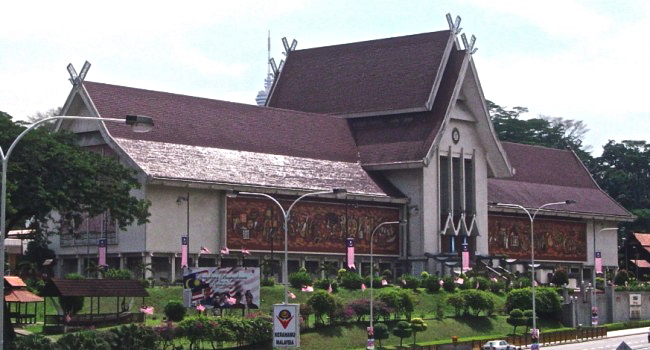 |
KUALA LUMPUR
Muzium Negara
Jabatan Muzium Malaysia
Jalan Damansara
50566, Kuala Lumpur.
Telefon: (603) 2267 1111
From - June 26th, 2014
Weapons were chosen as the theme to expose society to
the evolution of weapons, not only in the Malay archipelago, but also in
other places — China, Japan, Korea and Turkey. |
Formerly at the Topkapi Palace Museum in Istanbul, Turkey, you will
be awed by the sight of the Zulfakar, an ancient sword that belonged to
the fourth Caliph of Islam, Saidina Ali. The sword is considered a
revered symbol of Islam. This magnificent sword and hundreds of other
weapons from all over the world are at the exhibit.
The exhibition is set to draw thousands of visitors, who will have
the opportunity to see nine other greatest swords, apart from the “Zulfakar”. |
|
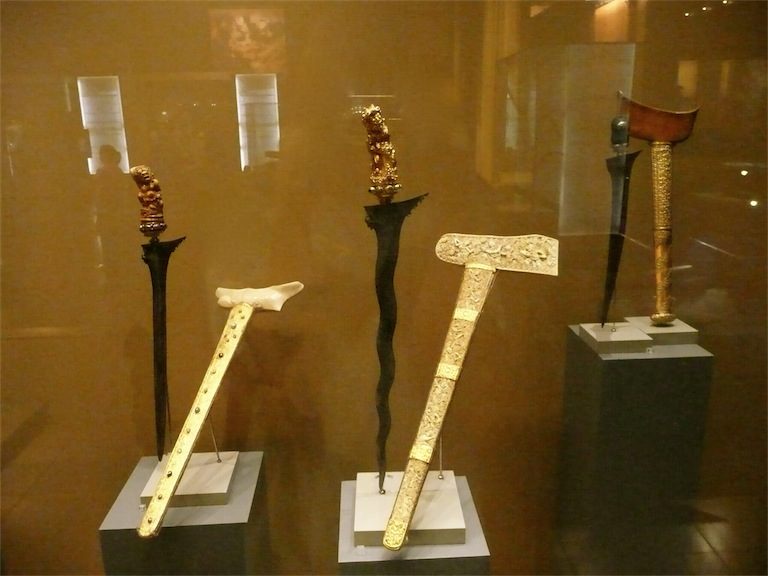 |
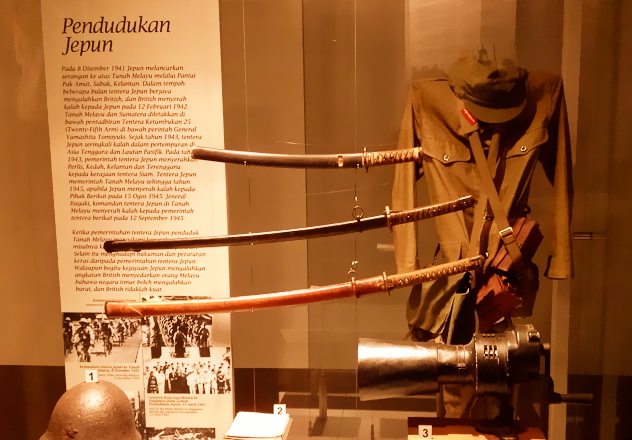 |
The other arms include:
The Samurai Sword of Japanese Army General Tomoyugi Yamashita, a.k.a
“Tiger of Malaya”
The sword that belonged to Argentine war General Jose De San Martin,
a.k.a Curved Saber of San Martin
The Seven Branched Sword from Korea
The Wallace Sword of Scotland
Tizona of Spain
The sword used by France’s Napoleon Bonaparte
The Sword Of Mercy, that belonged to Britain’s Edward the Confessor
The Hanjo Masamune sword, with its origins going back to the shogun era
of Japan
The Joyeuse sword in the stone from Italy |
|
Ancient Gong |
Malaysian Dragon |
|
Among the things that the exhibition tries to highlight
is the technology used in making weapons, for regular use and during
warfare. Weapons were initially used for hunting, farming and as status
symbols. But with the passage of time, they became indispensable in
self-defense and war.
Maybe, there are not many people today who are aware of
the evolution of weapons, especially within this archipelago.
“Most people only know of traditional arms like the Kriss (dagger),
Parang (machete), Tombak (spike) and Lembing (spear). However, thousands
of arms have been in use since hundreds of years ago. |
|
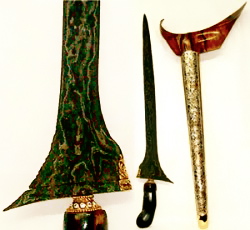 |
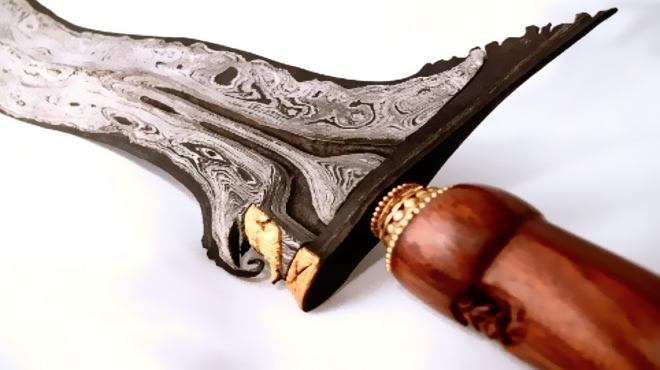 |
| The Naning war is the earliest record of Malay warriors
using firepower, where they used the “Pemuras”. The Salatus Salatin manuscript recorded the use of Istinggar (a type of
rifle) by the Johor-Riau army in helping the Dutch take on the
Portuguese.
Apart from the main theme, centering on weapons, visitors can also
view the body armour of warriors of the early days that included the
coat of mail, made of metal chain. This body armour was widely used in
Kalimantan and by the Moros in south Philippines.
The exhibition at Galeri 1, 2 and 3 would takes visitors through
the evolution of weapons, right from how the weapons were used, weapons
of significance, popular weapons, the weapons of the indigenous people
of the world, legends and folklore associated with weapons, and weapons
as symbols of power and sovereignty.
The popular weapons like the Nunchuku used by Bruce Lee, Bintang Naga
sword used by Ninja, the sword of the Vikings, the bow and arrow, the
silambam stick and the axe of the Red Indians will also be showcased.
That is not all, legendary characters and folklore from the Malay
Annals, the Ramayana epic and the Journey To The West will be showcased
along with the weapons used by the popular characters like Robin Hood
(Cross Bow), Zorro (sword), Sinbad (Arab Sword), King Arthur
(Excalibur), Hang Tuah (Keris Taming Sari), Shogun Minamoto Yoritomo
(samurai sword), Salahudin Al-Ayubi (sword) and many more.
Also among the artifacts in Museum Negara’s collection to be showcased
will be the Batu Ranjut, a traditional weapon widely used by the ancient
Malay community. The other weapons are the Yogyakarta Royal Spear, the
symbol of the might of the Javanese royalties, the sword of the 16th
century Muslim army, with its handle made of copper, the Keris Madura,
that is believed to have mystical powers in taking on the opponent, and
the Keris Bugis and Keris Surakata Kraton, with their handle shaped like
a horse shoe, said to have belonged to Java royalties.
In the present day context, in enhancing the awareness on the sufferings
and bloodshed caused by the use of weapons on mankind, there will be a
video show and pictorial illustrations based on numerous events,
including the atomic bomb dropped in Hiroshima, ethnic cleansing in Asia
and Europe, and religious conflicts. |
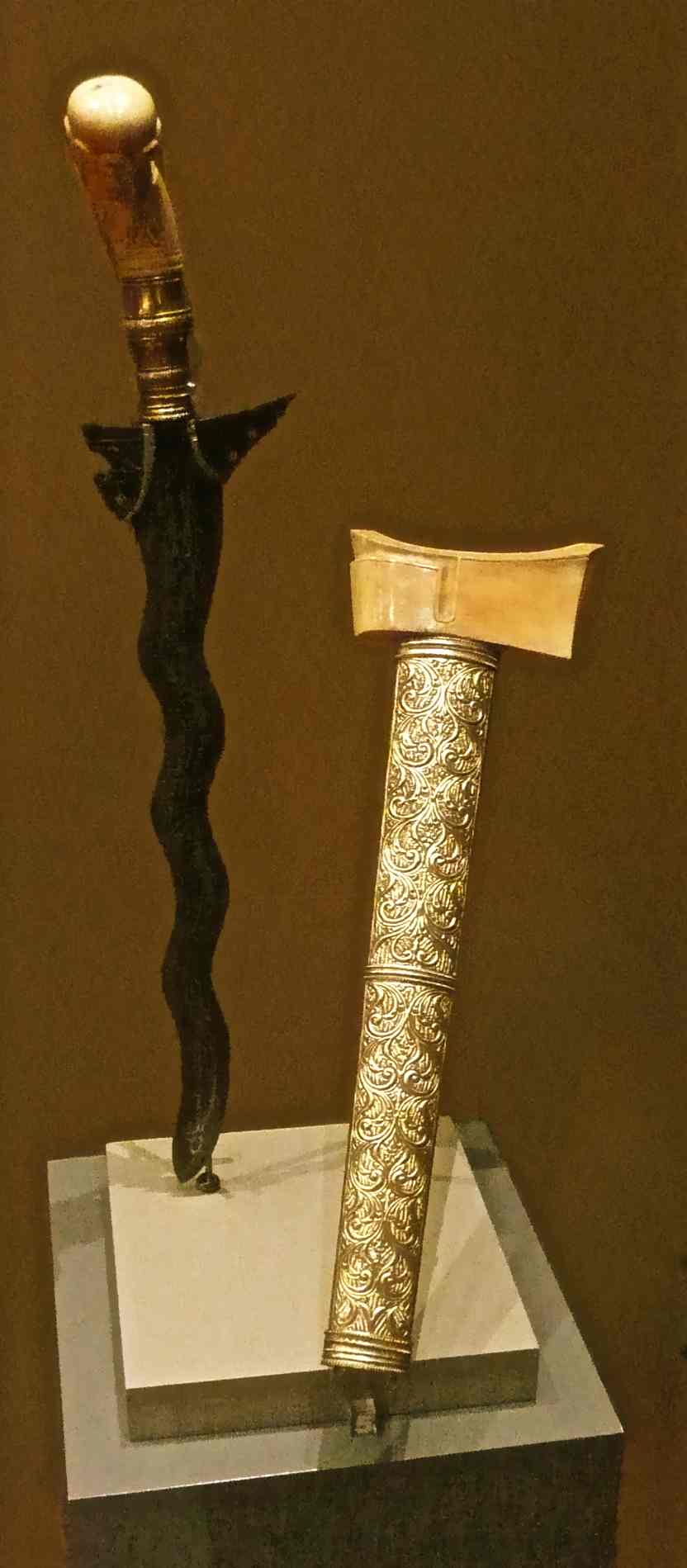 |
|
|
 |
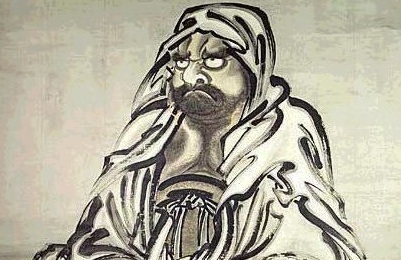 |
|
June 7th, 2014
Movie director S.
Haricharan has been invited to China to make a film
on the life of Bodhidharma, the 28th Patriarch of
Buddhism.
Haricharan, a director from the south Indian state
of Tamil Nadu, has been granted access to shoot
within the precincts of a Shaolin temple. According
to legend, it was Bodhidharma who introduced Kung Fu
to the monks of Shaolin. Today, the Shaolin
monastery is among the most famous in the world, the
Kung Fu skills of its monks portrayed in various
documentaries and films. The director will be
accompanied by cinematographer Sharon and will
receive assistance from a Chinese crew during the
temple shoot.
“Is the blue-eyed barbarian, as he is referred to in
Chinese texts, a myth or real?” Haricharan asks. “I
consider this a rare privilege and an even greater
honor that I have been given access to shoot inside
the Shaolin temple at Mount Song in the Henan
Province of China. It is probably the first time
that a film director from Tamil Nadu will have
access to shoot inside the Shaolin temple." |
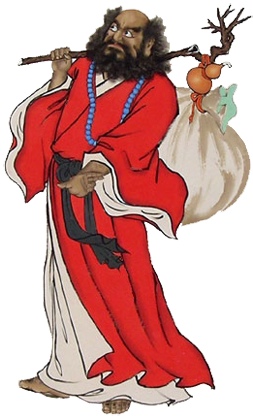 |
|
|
|